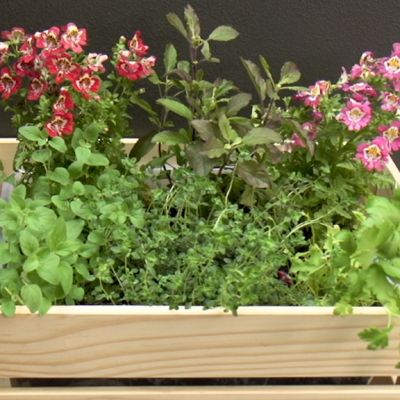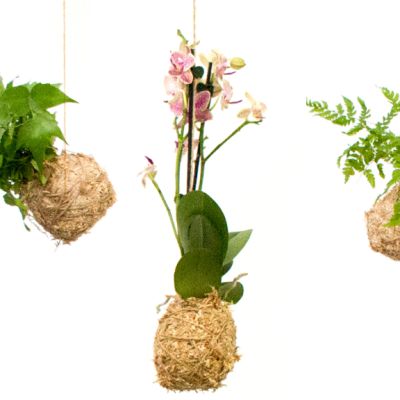How to make a hanging plant tray
Indoor plants are a fantastic way to bring greenery into your interior, but if you’ve run out of surfaces to put your plants on, it’s time to start thinking vertically.
This hanging plant tray creates a platform for displaying indoor plants without taking up any extra shelf or counter space in your home.
The tray can be hung from ceilings or beams in your home using an S-hook and a screw, meaning it can be easily repositioned when necessary.
Tools and materials required for this project
- Cordless drill
- 10mm drill bit
- 8mm sash cord
- S-hook
- Screw eyes or hooks
- Pot plants
How to make a hanging plant tray
1. Drill holes in the tray
Select a surface to form the tray. We’ve opted to repurpose a timber serving board, which is available from any homeware or department store. Mark three holes at equal intervals around the perimeter of the tray about 20mm from the edge, then drill holes using a 10mm drill bit.
Tip: Elevate the tray on two scrap pieces of timber to avoid drilling a hole in your workbench.
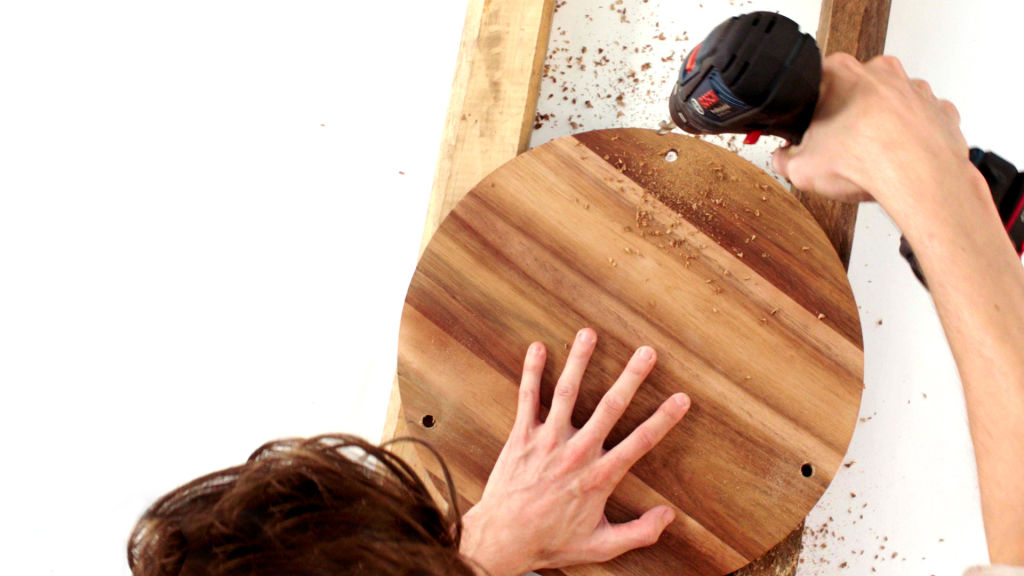
2. Assemble the ropes
The tray is suspended by three lengths of 8-millimetre sash cord. First, decide how high you want the tray to hang and measure that length from the ceiling. Then, cut three lengths of cord about 50 centimetres longer than that. Tie the bundle of cords together twice with a simple overhand knot to create a loop from which to hang the tray
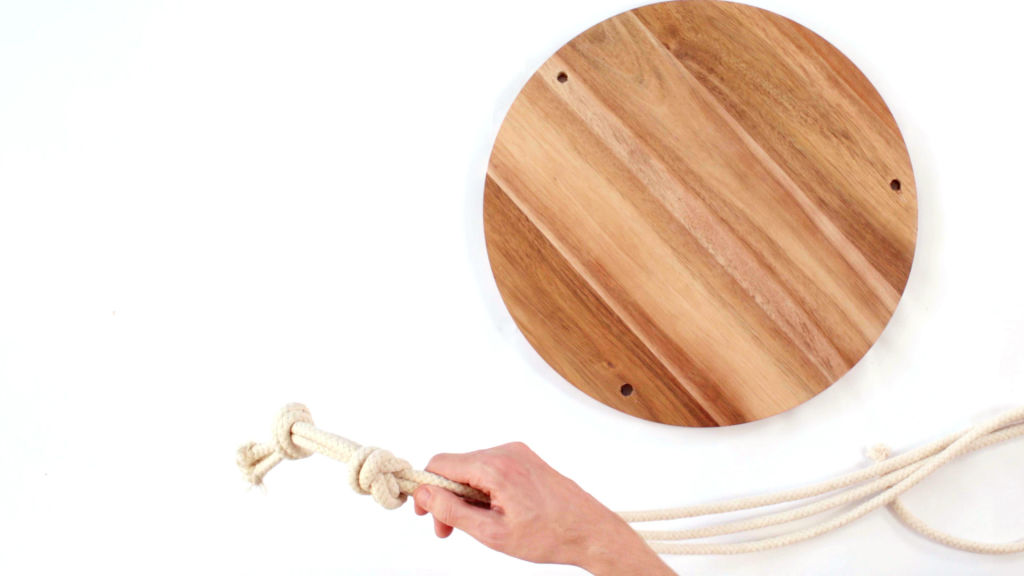
3. Attach the ropes
Thread one rope through each hole then tie it tightly in a knot, close to the end, then trim off any excess.
Tip: If the ropes are difficult to get through the holes, neatly trim the ends and use a screwdriver to push the ropes through.
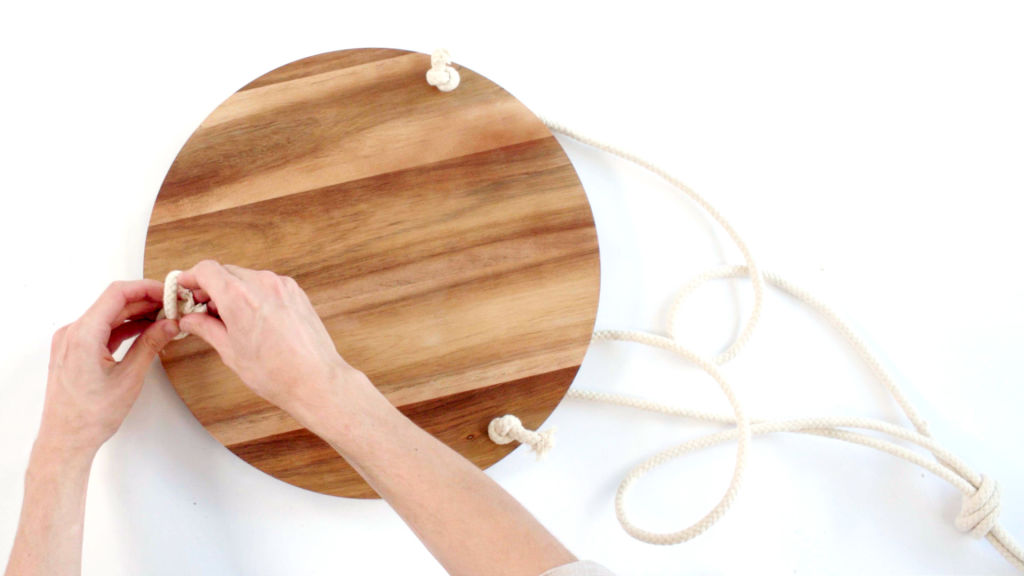
How to hang the plant tray
The weight of the tray and plants means you’ll need to hang it from a beam or ceiling joist. Use a stud-finder to locate joists, then drive a screw eye or hook into the joist. Alternatively, if your home has exposed beams, drive a screw or hook into the beam.
To hang the tray, hang an S-hook from the screw or hook, then hang the loop of bundled cords from the S-hook.
Carefully position pot plants on the tray one at a time, ensuring the tray is evenly balanced.
Avoid hanging the tray outdoors in windy areas to minimise the risk of plants falling off the tray.
We recommend
We thought you might like
States
Capital Cities
Capital Cities - Rentals
Popular Areas
Allhomes
More
- © 2025, CoStar Group Inc.
